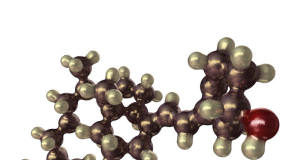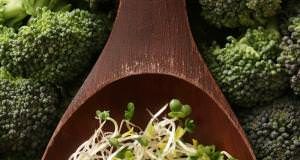New Urine Test Shows Prostate Cancer Risk; Test For Gene Fusion...
A new urine test can help aid early detection of and treatment decisions about prostate cancer, a study from the University of Michigan Comprehensive Cancer Center and the Michigan Center for Translational Pathology finds.
Progesterone Inhibits Growth of Neuroblastoma Cancer Cells
High doses of the hormone progesterone can kill neuroblastoma cells while leaving healthy cells unscathed, scientists at Emory University School of Medicine have found...
Seven In One Blow: Scientists Discover DNA Regions Influencing Prostate Cancer...
Doctors have known for a long time that prostate cancer "runs in the family." Men with relatives who have been diagnosed with prostate cancer have an elevated risk of also developing this type of cancer. It was only last year that DKFZ scientists calculated that this risk rises with the number of affected direct family members and also depends on the relatives' age at outbreak of the disease.
New Insights On Role Of Antioxidants In Cancer Prevention And Progression
Unstable molecules called reactive oxygen species (ROS) have long been thought to promote cancer by causing DNA damage and activating oncogenes, but new data suggests they may actually suppress tumor growth, according to a paper published this week in Nature.
Low-Carbohydrate, High-Protein Diets May Reduce Both Tumor Growth Rates And Cancer...
Eating a low-carbohydrate, high-protein diet may reduce the risk of cancer and slow the growth of tumors already present, according to a study published in Cancer Research, a journal of the American Association for Cancer Research. The study was conducted in mice, but the scientists involved agree that the strong biological findings are definitive enough that an effect in humans can be considered.
Eight Substances, Including Formaldehyde, Added To U.S. Report On Carcinogens
The U.S. Department of Health and Human Services has added eight substances to its Report on Carcinogens, a science-based document that identifies chemicals and biological agents that may put people at increased risk for cancer.
Gene Expression Changes In Nasal Cells May Help Identify Lung Cancer...
A simple, minimally-invasive technique using cells from the interior of the nose could help clinicians detect lung cancer in its earliest -- and most treatable -- stages, according to a study conducted by researchers in Boston.The study was presented at the ATS 2011 International Conference.
Potassium Iodate And “Dirty Bombs”
I wrote this review on potassium iodide a few years ago. The pills, also known as “KI,” prevent the thyroid gland from absorbing radiation released from nuclear weapons and nuclear power plants if taken within 24-hours of exposure. Seems relevant, especially for those of us on the West Coast who are monitoring the situation with the Japanese nuclear power plants.
Health Benefits Of Eating Tomatoes Emerge
ScienceDaily (Mar. 7, 2011) — Eating more tomatoes and tomato products can make people healthier and decrease the risk of conditions such as cancer, osteoporosis and cardiovascular disease, according to a review article the American Journal of Lifestyle Medicine (published by SAGE).
Markedly Higher Vitamin D Intake Needed To Reduce Cancer Risk, Researchers...
Researchers at the University of California, San Diego School of Medicine and Creighton University School of Medicine in Omaha have reported that markedly higher intake of vitamin D is needed to reach blood levels that can prevent or markedly cut the incidence of breast cancer and several other major diseases than had been originally thought.
Blood-Clotting Protein Linked To Cancer And Septicemia
Scientists in a collaboration between EMBL Heidelberg and the University of Heidelberg Medical Centre have discovered how stressed cells boost the production of the key blood-clotting factor, thrombin. Their work shows how cancer cells may be taking advantage of this process, and opens new possibilities for fighting back against cancer and septicemia.
Sprouts? Supplements? Team Them Up To Boost Broccoli’s Cancer-Fighting Power
A new University of Illinois study provides convincing evidence that the way you prepare and consume your broccoli matters, and also suggests that teaming broccoli with broccoli sprouts may make the vegetable's anti-cancer effect almost twice as powerful.















